 W
WDouglas Graham Altman FMedSci was an English statistician best known for his work on improving the reliability and reporting of medical research and for highly cited papers on statistical methodology. He was professor of statistics in medicine at the University of Oxford, founder and Director of Centre for Statistics in Medicine and Cancer Research UK Medical Statistics Group, and co-founder of the international Equator Network for health research reliability.
 W
WSudipto Banerjee is an Indian-American statistician best known for his work on Bayesian hierarchical modeling and inference for spatial data analysis. He is currently Professor and Chair of the Department of Biostatistics in the School of Public Health at the University of California, Los Angeles (UCLA).
 W
WNorman Edward Breslow was an American statistician and medical researcher. At the time of his death, he was Professor (Emeritus) of Biostatistics in the School of Public Health, of the University of Washington. He is co-author or author of hundreds of published works during 1967 to 2015.
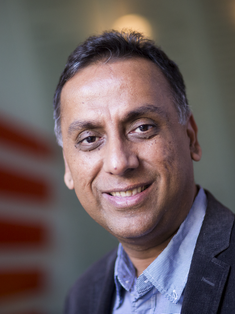 W
WNilanjan Chatterjee is a Bloomberg Distinguished Professor of Biostatistics and Genetic Epidemiology at Johns Hopkins University, with appointments in the Department of Biostatistics in the Bloomberg School of Public Health and in the Department of Oncology in the Sidney Kimmel Comprehensive Cancer Center in the Johns Hopkins School of Medicine. He was formerly the chief of the Biostatistics Branch of the National Cancer Institute's Division of Cancer Epidemiology and Genetics.
 W
WCharlotte Mary Deane is an English Professor of Structural Bioinformatics and the former Head of the Department of Statistics at the University of Oxford.
 W
WLori Elizabeth Dodd is an American mathematical statistician specialized in clinical trials methodology, statistical analysis of genomic data, design of clinical trials using biomarkers and imaging modalities, and statistical methods for analyzing biomarkers. She is a statistician in the biostatistics research branch at the National Institute of Allergy and Infectious Diseases.
 W
WSir William Richard Shaboe Doll was a British physician who became an epidemiologist in the mid-20th century and made important contributions to that discipline. He was a pioneer in research linking smoking to health problems. With Ernst Wynder, Bradford Hill and Evarts Graham, he was credited with being the first to prove that smoking caused lung cancer and increased the risk of heart disease. He also carried out pioneering work on the relationship between radiation and leukaemia as well as that between asbestos and lung cancer, and alcohol and breast cancer. On 28 June 2012 he was the subject of an episode of The New Elizabethans, a series broadcast on BBC Radio Four to mark the Diamond Jubilee of Queen Elizabeth II, dealing with 60 public figures from her reign.
 W
WChristl Ann Donnelly is a professor of Statistical Epidemiology at Imperial College London, the University of Oxford and a Fellow of St Peters College, Oxford. She serves as associate director of the MRC Centre for Global Infectious Disease Analysis.
 W
WBradley Efron is an American statistician. Efron has been president of the American Statistical Association (2004) and of the Institute of Mathematical Statistics (1987–1988). He is a past editor of the Journal of the American Statistical Association, and he is the founding editor of the Annals of Applied Statistics. Efron is also the recipient of many awards.
 W
WWilliam Farr CB was a British epidemiologist, regarded as one of the founders of medical statistics.
 W
WSir Ronald Aylmer Fisher was a British statistician, geneticist, and professor. For his work in statistics, he has been described as "a genius who almost single-handedly created the foundations for modern statistical science" and "the single most important figure in 20th century statistics". In genetics, his work used mathematics to combine Mendelian genetics and natural selection; this contributed to the revival of Darwinism in the early 20th-century revision of the theory of evolution known as the modern synthesis. For his contributions to biology, Fisher has been called "the greatest of Darwin’s successors".
 W
WJoseph L. Fleiss was an American professor of biostatistics at the Columbia University Mailman School of Public Health, where he also served as head of the Division of Biostatistics from 1975 to 1992. He is known for his work in mental health statistics, particularly assessing the reliability of diagnostic classifications, and the measures, models, and control of errors in categorization.
 W
WChristine Margaret Blasey Ford is an American professor of psychology at Palo Alto University and a research psychologist at the Stanford University School of Medicine. She specializes in designing statistical models for research projects. During her academic career, Ford has worked as a professor at the Stanford University School of Medicine Collaborative Clinical Psychology Program.
 W
WIan Ford FRSE FRCP(Glas) FSCT is professor of biostatistics and director of the Robertson Centre for Biostatistics, and former Dean of Faculty, Information and Mathematical Sciences, at the University of Glasgow.
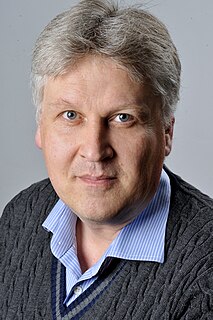 W
WJosef "Sepp" Hochreiter is a German computer scientist. Since 2018 he has led the Institute for Machine Learning at the Johannes Kepler University of Linz after having led the Institute of Bioinformatics from 2006 to 2018. In 2017 he became the head of the Linz Institute of Technology (LIT) AI Lab which focuses on advancing research on artificial intelligence. Previously, he was at the Technical University of Berlin, at the University of Colorado at Boulder, and at the Technical University of Munich.
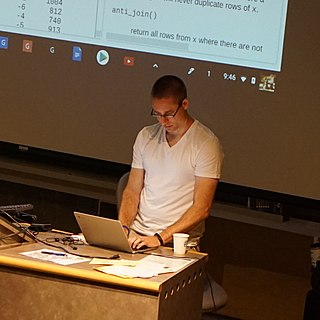 W
WJeffrey Tullis Leek is an American biostatistician and data scientist working as a Professor at Johns Hopkins Bloomberg School of Public Health. He is an author of the Simply Statistics blog, and runs several online courses through Coursera, as part of their Data Science Specialization. His most popular course is The Data Scientist's Toolbox., which he instructed along with Roger Peng and Brian Caffo. Leek is best known for his contributions to genomic data analysis and critical view of research and the accuracy of popular statistical methods.
 W
WSabin Manuilă was an Austro-Hungarian-born Romanian statistician, demographer and physician. A nationalist activist during World War I, he became noted for his pioneering research into the biostatistics of Transylvania and Banat regions, as well as a promoter of eugenics and social interventionism. As a bio- and geopolitician, Manuilă advocated the consolidation of Greater Romania through population exchanges, colonization, state-sponsored assimilation, or discriminatory policies.
 W
WRoxana Moslehi is an Iranian genetic epidemiologist.
 W
WJukka-Pekka Onnela is a Finnish statistical network scientist. He is an Associate Professor of Biostatistics at the Harvard T.H. Chan School of Public Health and Director of the Health Data Science Program. Onnela is known for his pioneering research using cell phone data in network science. He was awarded the NIH Director's New Innovator Award in 2013 for his work in digital phenotyping.
 W
WKarl Pearson was an English mathematician and biostatistician. He has been credited with establishing the discipline of mathematical statistics. He founded the world's first university statistics department at University College, London in 1911, and contributed significantly to the field of biometrics and meteorology. Pearson was also a proponent of social Darwinism and eugenics. Pearson was a protégé and biographer of Sir Francis Galton. He edited and completed both William Kingdon Clifford's Common Sense of the Exact Sciences (1885) and Isaac Todhunter's History of the Theory of Elasticity, Vol. 1 (1886–1893) and Vol. 2 (1893), following their deaths.
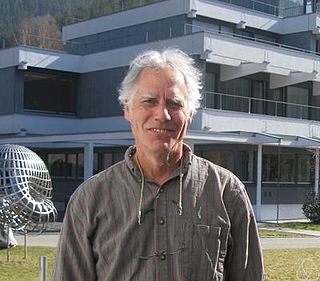 W
WJames M. Robins is an epidemiologist and biostatistician best known for advancing methods for drawing causal inferences from complex observational studies and randomized trials, particularly those in which the treatment varies with time. He is the 2013 recipient of the Nathan Mantel Award for lifetime achievement in statistics and epidemiology.
 W
WMartin Schumacher is a German statistician. He was the head of the Institute for Medical Biometry and Statistics of the Medical Center of the University of Freiburg from 1986 until 2017.
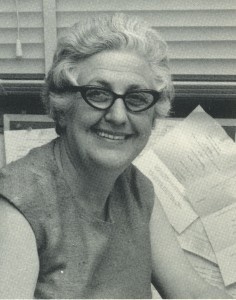 W
WMindel Cherniack Sheps was a Canadian physician, biostatistician and demographer. She held academic appointments at Harvard Medical School, University of Pittsburgh, Columbia University and UNC Chapel Hill, where she was Professor of Biostatistics.
 W
WProfessor José María Valderas Martínez is an Academic General Practitioner and health services researcher.
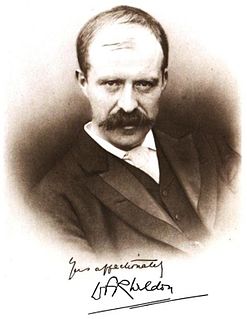 W
WWalter Frank Raphael Weldon DSc FRS generally called Raphael Weldon, was an English evolutionary biologist and a founder of biometry. He was the joint founding editor of Biometrika, with Francis Galton and Karl Pearson.
 W
WDaniela M. Witten is an American biostatistician. She is a professor and the Dorothy Gilford Endowed Chair of Mathematical Statistics at the University of Washington. Her research investigates the use of machine learning to understand high-dimensional data.
 W
WZhang, Zhaohuan (张照寰) was born in Zhenjiang, China, in 1925. He graduated from the Faculty of Medicine, Shanghai Medical College in 1950. Because of his outstanding school performance and academic potential, he was offered a lectureship by his alma mater upon graduation—a practice that is still in vogue in almost all universities in China when recruiting exceptional faculty members is difficult. In the eight years that followed, he worked there first as a lecturer and then an associate professor and associate director.